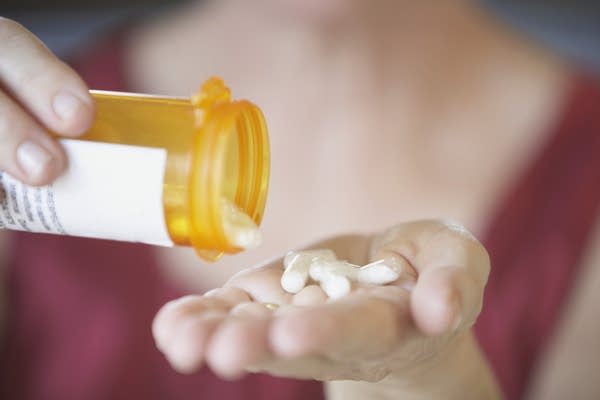The black market for prescription painkillers

When The New York Times published their latest story on the death of former Wild hockey player Derek Boogaard, they reported that Boogard had been addicted to prescription drugs. And he'd gotten many of those drugs by doctor-shopping and buying them on the black market.
It's no surprise since prescription drugs can bring in large sums of cash. In 2011, U.S. sales of prescription painkillers amounted to $9 billion. They're also extremely dangerous. According to the Centers for Disease Control and Prevention, 14,800 Americans died from overdosing on opioids in 2008, the most recent year data is available - more than the number of deaths from heroin or cocaine.
How easy is it to get large quantities of prescription drugs for personal use? Can you buy them on the street? And why are so many people abusing them?
Felix Gillette, staff writer for Bloomberg Businessweek, published a story this month about the twin George brothers who ran a pain clinic pill mill to distribute large amounts of prescription drugs:
It was a good year to be in the business of servicing people in pain. The economy was tanking. The real estate market was in free fall. People were losing their homes, businesses, savings, and jobs, and looking for an escape from their discomfort. The George brothers ran an ecumenical clinic. Their doctors didn't discriminate among the causes of human suffering--be it back pain, fibromyalgia, toothaches, cancer, depression, divorce, boredom, mental illness, unemployment, hip replacement, or withdrawal symptoms.
Just about everyone who came through their doors walked away with the same remedy: a prescription for a month-long supply of powerful opioids. More often than not, the pills were small and blue--generic, immediate-release oxycodone-hydrochloride, which everyone called "roxies." The customers often left satisfied and frequently returned.
Gillette will join The Daily Circuit Tuesday to talk about the black market for prescription drugs. Marvin Seppala, chief medical officer at Hazelden, will also join the discussion.
Create a More Connected Minnesota
MPR News is your trusted resource for the news you need. With your support, MPR News brings accessible, courageous journalism and authentic conversation to everyone - free of paywalls and barriers. Your gift makes a difference.
